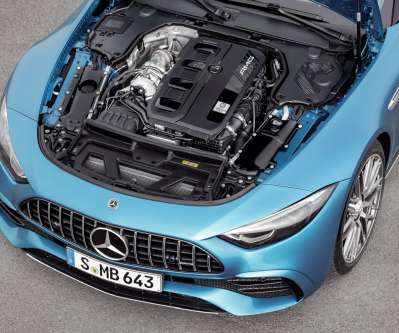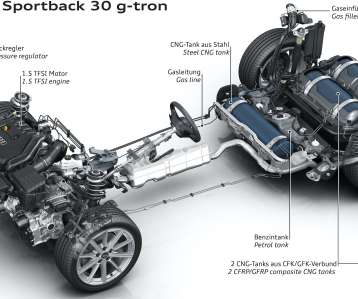New Mercedes-AMG SL 43 features engine with electric exhaust gas turbocharger derived directly from Formula 1
Green Car Congress
MAY 23, 2023
liter turbocharged M139 engine featuring an electric exhaust gas turbocharger. The electric exhaust gas turbocharger solves the conventional trade-off between a small, responsive turbocharger yielding a lower total output and a large turbocharger capable of high peak power with less responsiveness. An electric motor around 1.6






































Let's personalize your content